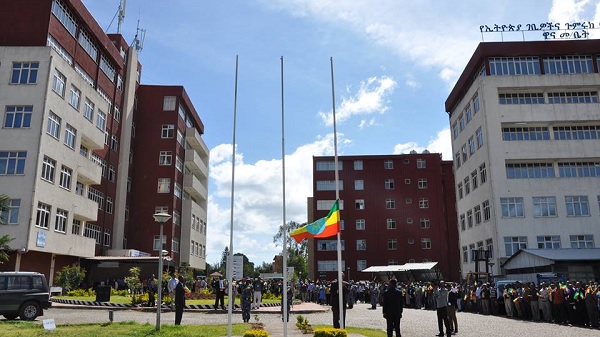
ERCA’s new customs management system improves transparency and communication, reduces delays in clearing goods, and maximizes the collection of customs revenue.
ADDIS ABAAB (ENA)–The Ethiopian Revenues and Customs Authority (ERCA) has introduced a new electronic Customs Management System (CMS), which would help to comply with international custom standards.
Briefing journalists today, CMS Project Manager Ababu Emiru said that the system is implemented through European Union (EU)- funded project to design, customize and deploy a customs management system on all ERCA’s operational stations.
The new system, which replaces the existing Automated System for Customs & Data (ASYCUDA++), fully started its operation at coordinating office in Djibouti, Galafi, Mille, Adama, Mojo, East Industrial Park, Gelan, Addis Ababa-Kality and Bole-Lemi Industrial Park, he pointed out.
Moreover, CMS will also partially be implemented at Moyale and Metema Yohannes Customs Stations, the Project Manager added.
According to him, the newly introduced CMS expected to fill the gaps that have been identified at the existing ASYCUDA++ through applying an intelligent risk management system.
Besides, CMS will provide transparency in business transactions, promote predictable, fast economical and clearance operations, he said.
The system uses modern software developing system which makes the system easy to accommodate itself with variable operations changing with times and inculcate new and improved functionalities, he noted.
Ato Ababu indicated that ERCA has a plan to complete the implementation of the system to regional branches on October, 2018.
Customs management system improves transparency and communication, reduces delays in clearing goods, and maximizes the collection of customs revenue. The system improves compliance with the legal requirements that govern international trade, and facilitate greater cooperation in:
- Customs processing
- Transit and presentation
- Classification
- Electronic communication and document printing
More than 85 countries worldwide have implemented CMSs to enable customs to discharge its fiscal and control responsibilities more effectively. However, an automated system alone does not guarantee the elimination of procedural bottlenecks, lack of transparency and inconsistent clearing processes.
